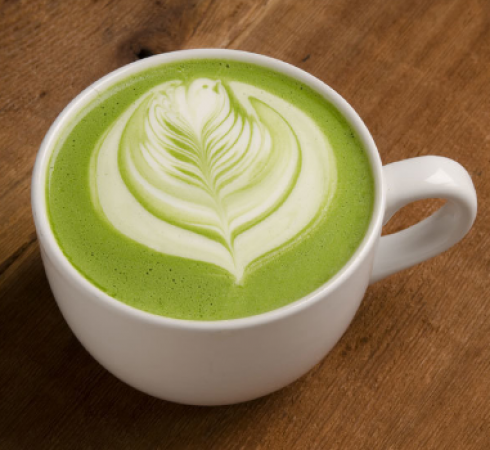
Matcha tea, a traditional Japanese green tea, has gained immense popularity worldwide in recent years due to its unique taste, vibrant green color, and a plethora of health benefits. Made from shade-grown tea leaves that are ground into a fine powder, matcha offers a concentrated dose of nutrients, antioxidants, and compounds that can positively impact your overall well-being. In this article, we will explore the marvelous health benefits of matcha tea and why it deserves a prominent place in your daily routine.
Health Benefits of Matcha Tea -
Rich in Antioxidants - One of the most celebrated aspects of matcha tea is its abundance of antioxidants. Antioxidants are essential in combating oxidative stress and neutralizing free radicals, which are harmful molecules that can damage cells and contribute to aging and chronic diseases. Matcha is particularly high in catechins, a type of antioxidant that includes the potent Epigallocatechin Gallate (EGCG). EGCG is believed to be responsible for many of matcha's health benefits, including its cancer-fighting properties.
Boosts Metabolism and Aids Weight Management - Matcha tea is known for its potential to boost metabolism and support weight management. Research suggests that the catechins in matcha can enhance thermogenesis, the process by which the body burns calories to produce heat. Regular consumption of matcha may help increase the body's energy expenditure and promote fat oxidation, making it a valuable addition to a balanced diet and active lifestyle.
Calms the Mind and Enhances Focus - Beyond its physical benefits, matcha tea also possesses calming properties for the mind. It contains L-theanine, an amino acid that promotes relaxation and reduces stress without causing drowsiness. The combination of L-theanine with caffeine in matcha leads to a state of focused alertness and mental clarity, which is often referred to as "calm energy." This makes matcha an ideal choice for those seeking a balanced and sustained energy boost.
Supports Cardiovascular Health - Regular consumption of matcha tea may be beneficial for heart health. Studies have suggested that the catechins in matcha can help reduce levels of LDL cholesterol (often referred to as "bad" cholesterol) and triglycerides. Additionally, the antioxidants in matcha contribute to better endothelial function, which is essential for maintaining healthy blood vessels and promoting good cardiovascular health.
Enhances Detoxification - The chlorophyll content in matcha, responsible for its vibrant green color, is known for its detoxifying properties. Chlorophyll aids in flushing out toxins and heavy metals from the body, supporting the liver's natural detoxification processes. Regularly incorporating matcha into your diet can help cleanse and rejuvenate your system.
Strengthens the Immune System - Matcha tea's rich nutrient profile, including vitamins (such as vitamin C, vitamin A, and vitamin K) and minerals (such as potassium, iron, and calcium), supports a robust immune system. The antioxidants in matcha also play a significant role in fortifying the body's defense against infections and diseases, helping you stay healthy and resilient.
Supports Healthy Skin - The antioxidants in matcha, combined with its anti-inflammatory properties, contribute to healthier and more radiant skin. Regular consumption of matcha can help reduce skin redness, irritation, and the signs of aging. Additionally, matcha can be used topically as a face mask or in skin care products for direct skin benefits.
Balances Blood Sugar Levels - Matcha tea may have a positive impact on blood sugar levels, making it beneficial for individuals with diabetes or those aiming to prevent diabetes. Some research indicates that matcha can help regulate blood glucose levels and improve insulin sensitivity, potentially reducing the risk of type 2 diabetes.
Provides a Rich Source of Chlorophyll - As mentioned earlier, matcha is abundant in chlorophyll, a powerful green pigment found in plants. Chlorophyll is known for its detoxifying properties and its potential to support the body's natural cleansing processes. Furthermore, chlorophyll helps oxygenate the blood, contributing to improved energy levels and overall vitality.
Fosters Mindful Rituals - Beyond its health benefits, the preparation and consumption of matcha tea have become cherished rituals in many cultures. The process of whisking the tea powder into a frothy beverage encourages mindfulness and a moment of tranquility in our often busy lives. Engaging in such mindful practices can contribute to reduced stress and improved mental well-being.
In conclusion, matcha tea is undoubtedly a green elixir with an impressive array of health benefits. From its high antioxidant content and potential for weight management to its calming effects on the mind and support for cardiovascular health, matcha offers a myriad of reasons to embrace it as a part of your daily routine. So, raise a cup of this vibrant green tea, savor its unique flavors, and relish the journey towards improved well-being and a healthier, more balanced life.
Also read: The Health Benefits of Arbi Leaves: Nature's Green Wonder
8 Delicious Low-Sugar Fruits for a Sweet and Healthy Diet
Kantola: The Nutrient-Packed Vegetable with 8 Incredible Health Benefits